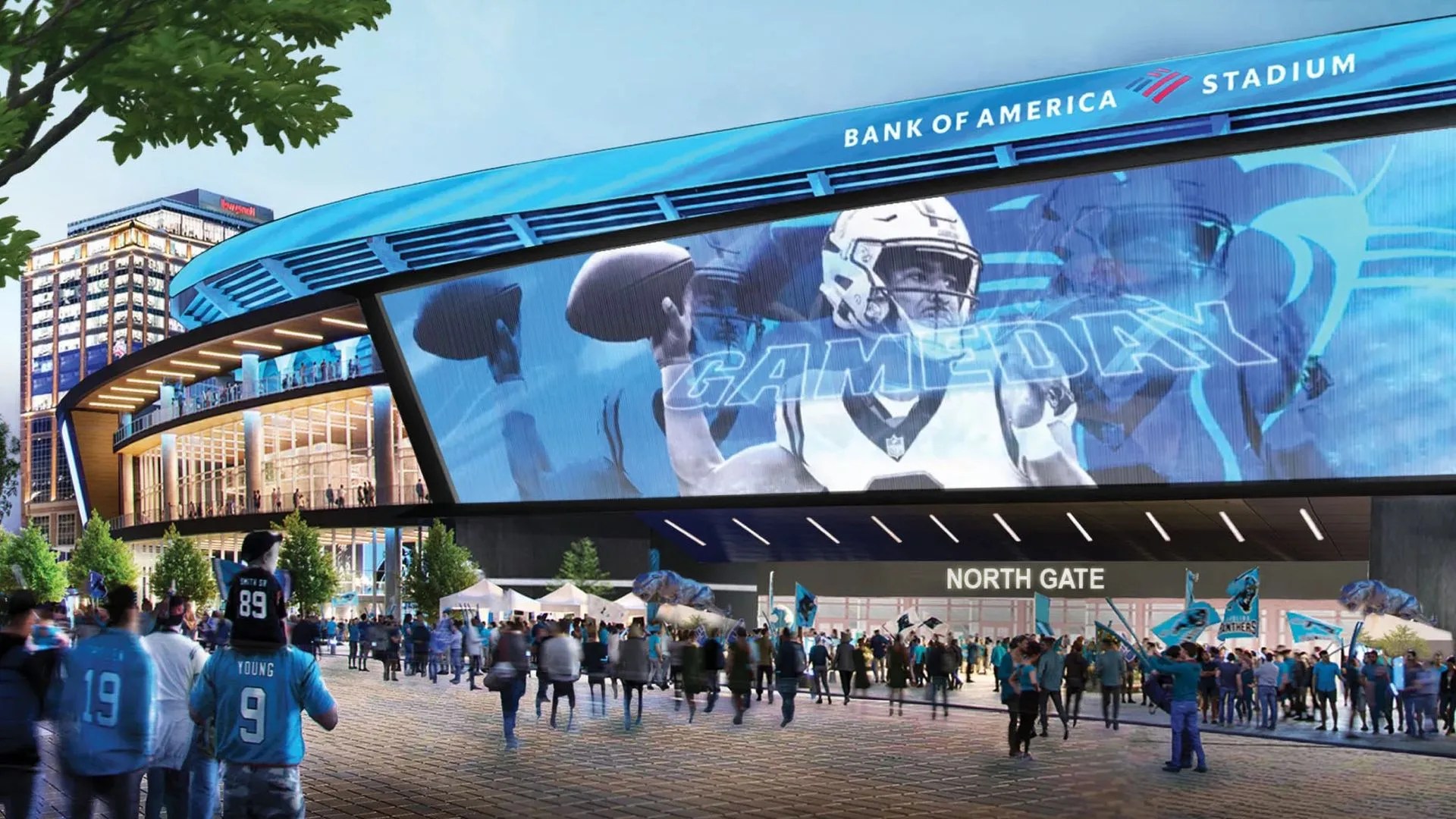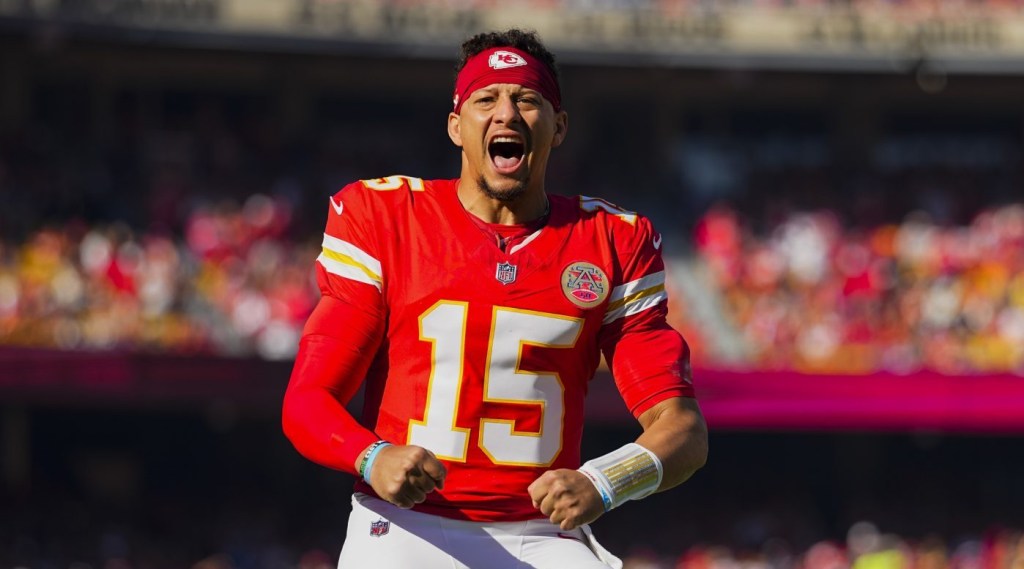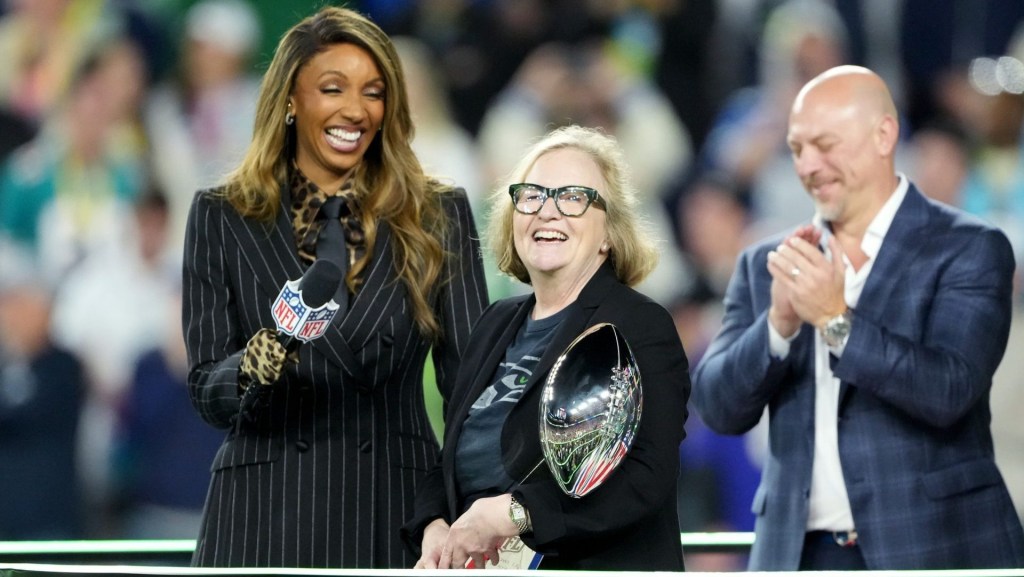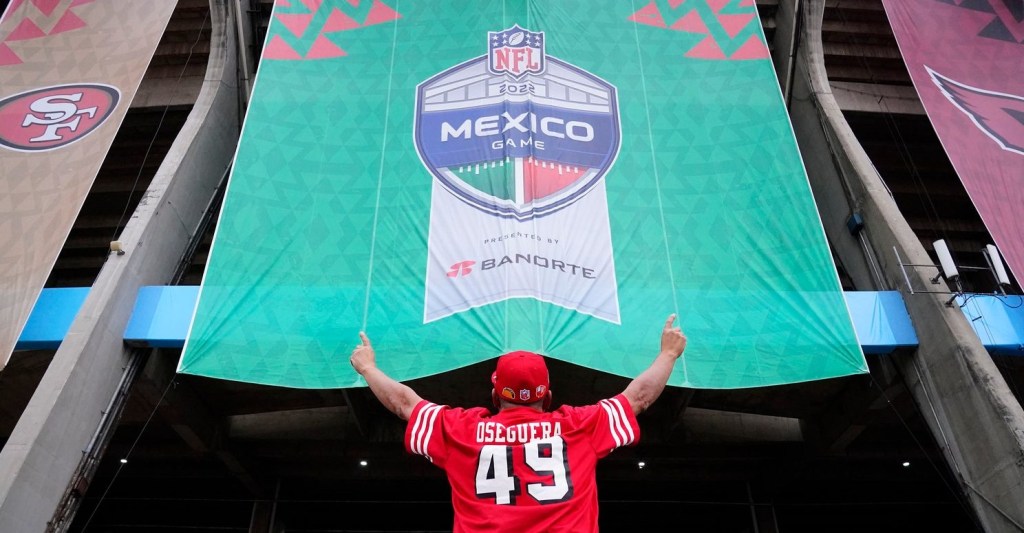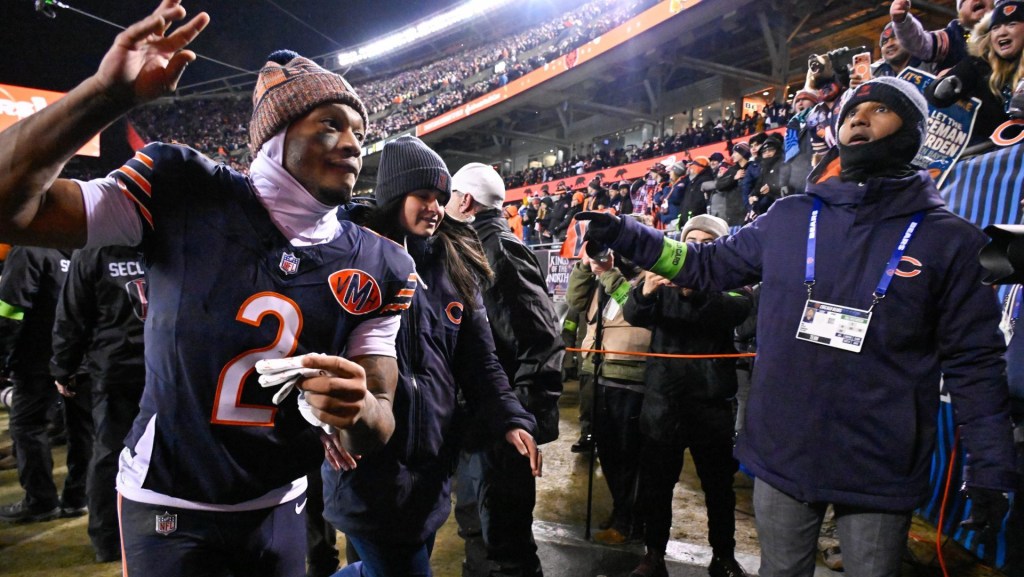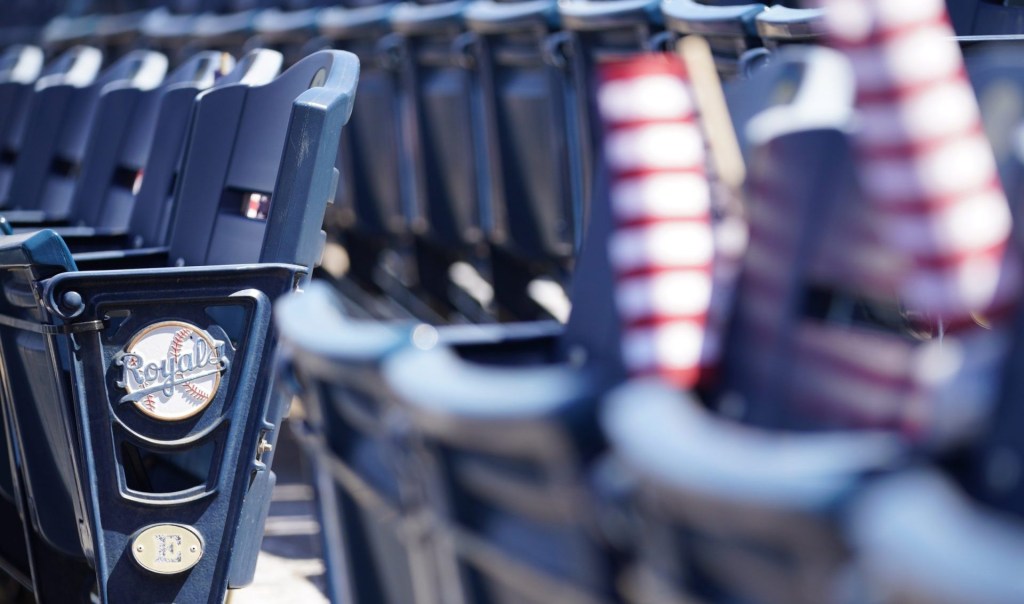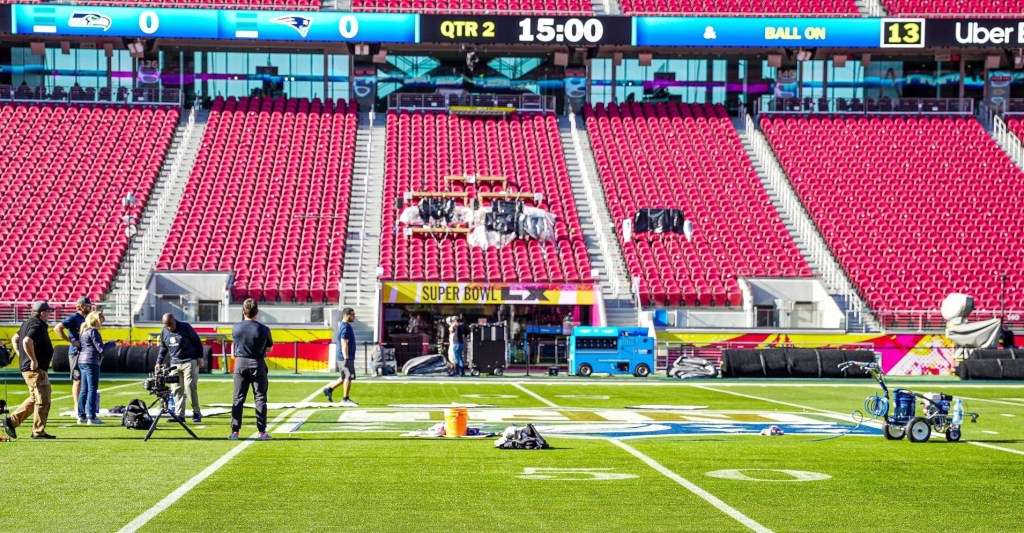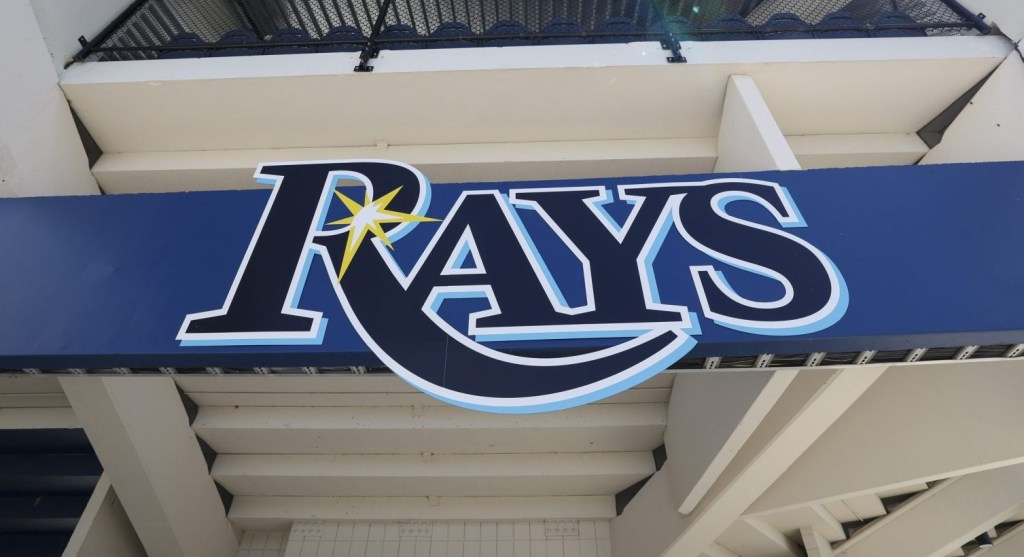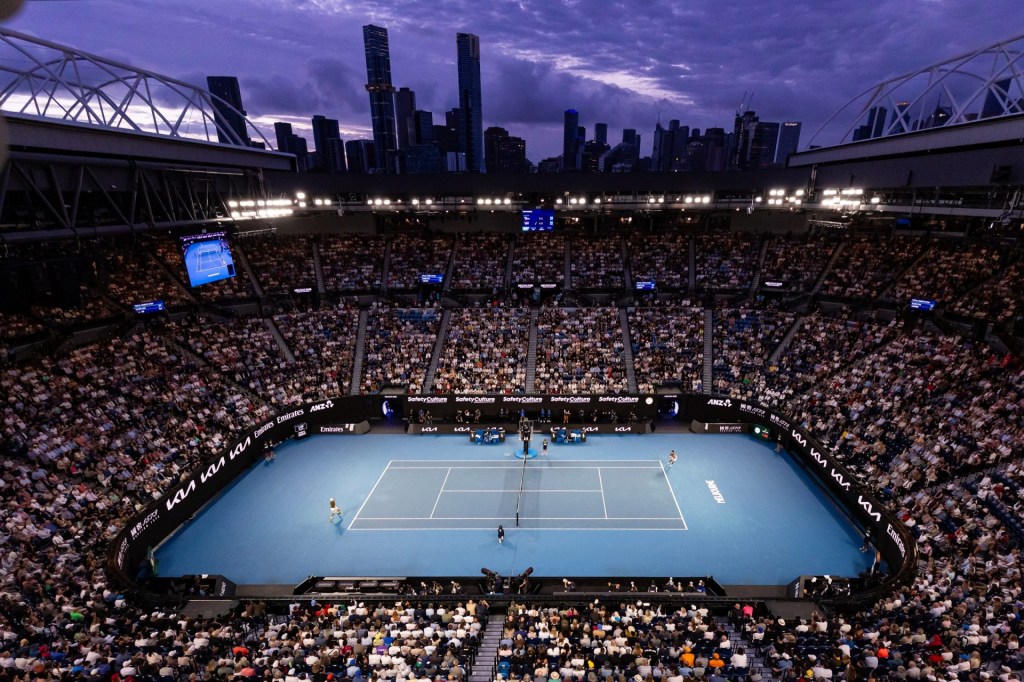The new pitch for an $800 million renovation to Bank of America Stadium in Charlotte runs along largely familiar grounds, namely updating a 28-year-old facility and bringing it fully into the 21st century for its two primary tenants: the NFL’s Panthers and Charlotte FC of MLS.
But there is an even bigger—and also increasingly common—goal with the proposed work: landing major events such as the Super Bowl, Final Four, and College Football Playoff that typically require a dome, particularly if played in colder-weather climates. As of now, the proposed Charlotte renovation does not include a dome, but that project is still deeply intertwined with going beyond local considerations.
“I’ll be blunt. I don’t think this city with an outdoor stadium is ever going to be on a Super Bowl rotation,” said Vinay Patel, chair of the Charlotte Regional Visitors Authority, to the city council in advance of a scheduled June 24 vote on the stadium plan. “But we have an opportunity to go get it at least once after this. … We have everything we need that the NFL would look for.”
Growing List of Cities
The Queen City is far from alone in connecting its local stadium deliberations to big-event aspirations. Many of the same considerations are playing out in:
- Chicago, where the Bears have proposed a $4.7 billion downtown, domed stadium capable of bringing the marquee events to the No. 3 U.S. media market
- Cleveland, where the Browns are considering a similar, domed facility in suburban Brook Park, Ohio, that could host such top-tier competitions—with that option standing against a less expensive, open-air renovation of the lakefront Cleveland Browns Stadium
- Jacksonville, where a proposed $1.4 billion renovation to EverBank Stadium to create what local officials call the “Stadium of the Future” also has designs on remaking the venue into a “Super Bowl–ready facility”
- Kansas City, where a modern, potentially domed facility is central to a growing push to lure the Chiefs across the border from Missouri to Kansas
- Washington, D.C., where a potential deal to remake the site of RFK Stadium for a new Commanders stadium is predicated in part on generating economic impact from events such as the Super Bowl
Dollars Behind the Dreams
The impetus behind the elevated focus around the major events is easily understandable. Sports industry tentpoles such as Super Bowl and Final Four generate an economic impact far beyond any local pro team’s regular-season or playoff games, often extending well into the hundreds of millions of dollars.
Such fiscal impact studies have long been the subject of scrutiny and excessive civic boosterism, and often need to be greeted with skepticism. But regardless of any specific number or how it’s derived, there is still little debate that events such as the Super Bowl have few rivals in what it can mean to a community.
“That’s the type of development that we would support in the District, one that delivers world-class sports,” Washington, D.C., mayor Muriel Bowser said on WTEM-AM regarding the potential RFK Stadium effort. “We’re not just talking about a potential Super Bowl. We haven’t been able to get the World Cup in the region because we don’t have a sufficient stadium. We weren’t able to get Taylor Swift to come to the region.”
